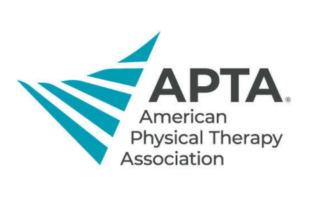The Alliance for Connected Care aims to:
Demonstrate the importance of Connected Care as a tool for improved quality and efficiency.
Build significant and high-level support for Connected Care among leaders in Congress and the Administration.
Enable more telehealth to support new models of care.
Lift geographic and site restrictions for telehealth in Medicare.
Establish a consensus-based, standardized definition of Connected Care to advance with policymakers.
Alliance News
Centers for Disease Control and Prevention (CDC): Telemedicine Use Among Adults With and Without Diagnosed Prediabetes or Diabetes
Centers for Disease Control and Prevention (CDC): Telemedicine Use Among Adults With and Without Diagnosed Prediabetes or Diabetes The CDC released a study which found that, telemedicine was used by approximately half of US adults diagnosed with prediabetes or diabetes in 2021, with a noticeable decrease in use in 2022. In 2021 and 2022, telemedicine use prevalence was 34.1% and 28.2% among adults without diagnosed diabetes or prediabetes, 47.6% and 37.6% among adults with prediabetes, and 52.8% and 39.4% among adults with diabetes, respectively. Findings suggest that telemedicine use can be improved among select populations with prediabetes or diabetes. [...]
Alliance Letter to Congressional Leaders Continued Bipartisan Leadership for Access to Telehealth
The Alliance for Connected Care sent a letter to Congressional leaders requesting their continued bipartisan leadership in assuring the public that access to telehealth services will not be allowed to lapse on December 31. Read the full letter here or below:
JAMA Network Open: Primary Care Practice Telehealth Use and Low-Value Care Services
JAMA Network Open: Primary Care Practice Telehealth Use and Low-Value Care Services In this cohort study of Medicare fee-for-service beneficiaries who received care from primary care practices in Michigan, some low-value care services (i.e., cervical cancer screening among women older than 65 years and low-value thyroid testing) were lower among practices with high telehealth use, and there was no association between practice-level telehealth use in rates of most other low-value care services not delivered in the office. As telehealth continues to be an important part of care delivery, evaluating how it may encourage or discourage low-value care services is [...]
JAMA Network Open: Building the Evidence on Mental Telehealth Care and Health Outcomes
JAMA Network Open: Building the Evidence on Mental Telehealth Care and Health Outcomes An ongoing challenge in observational studies comparing mental health outcomes for in-person vs telehealth care involves ensuring that the patients who use different modalities are similar with respect to both observed and unobserved characteristics. In this commentary piece, Jean Yoon, PhD, MHS, Health Economist of the VA Palo Alto Healthcare System, emphasizes the need to better understand the mechanisms behind the association of mental telehealth care and health outcomes. She also notes that mental telehealth care is now deeply embedded in the delivery of mental health care. [...]
Peterson Health Technology Institute: Digital Hypertension Management Solutions
Peterson Health Technology Institute: Digital Hypertension Management Solutions PHTI released a health technology assessment on digital hypertension management solutions. The report assessed the clinical effectiveness of these digital hypertension management solutions compared with usual care across 13 different outcome measures, including primary outcomes that focus on reducing systolic blood pressure (SBP) and increasing the proportion of patients achieving BPC. The report found that medication management delivered clinically meaningful decreases in SBP relative to usual care, and support faster improvements in hypertension than what typically occurs under usual care.




















